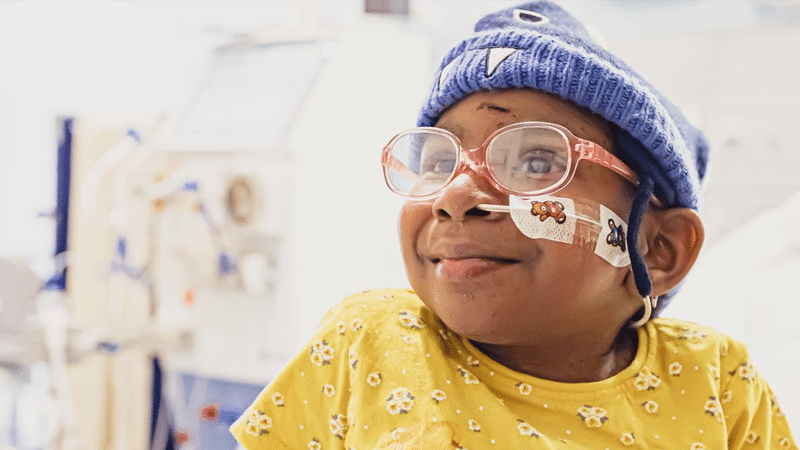An eight-year-old girl with a rare genetic condition has had her immune system ‘reprogrammed’ using ethical adult stem cells.
Aditi Shankar received healthy bone marrow stem cells from her mother to correct her immune system. Six months later she was well enough to have a kidney transplant – also donated by her mother.
Following her treatment at Great Ormond Street Hospital (GOSH), Aditi – who has Schimke’s immuno-osseous dysplasia – does not require life-long immunosuppressant drugs to stop her body rejecting the kidney.
Quality of life
Aditi told the PA news agency: “My mum gave me my new blood cells. I got the kidney transplant when I went to special sleep and closed my eyes. Now I have got the line out, I can go swimming.”
Prof Stephen Marks, Clinical Lead for renal transplantation at GOSH, explained: “Because of her underlying immune condition, it meant she would not be able to receive a kidney transplant.
“Her immune deficiency had to be corrected by having mum’s bone marrow first, and because Aditi was able to accept her mum’s bone marrow, that therefore meant her body could then see her mum’s kidney as being part of her.”
He remarked: “It really is great to see that she is an active eight-year-old girl, back to school, able to have an excellent quality of life, when in March 2021 we were in a situation of discussing what is the future going to hold.”
Medical ethics
Unlike embryonic stem cells, adult cells do not require the destruction of human life.
In recent years there have been numerous reports of medical breakthroughs using ethical, adult stem cells:
January 2023: New ethical stem cell research gives hope for dementia treatment
December 2022: Two year old ‘wouldn’t be with us today’ without world-first stem cell operation
May 2021: Ethical stem cells deliver dramatic cure for ‘bubble boy’ disease
March 2021: ‘She’s given me back my life’, teen thanks adult stem cell donor
January 2021: Ethical stem cell research finds MND damage may be reversible

